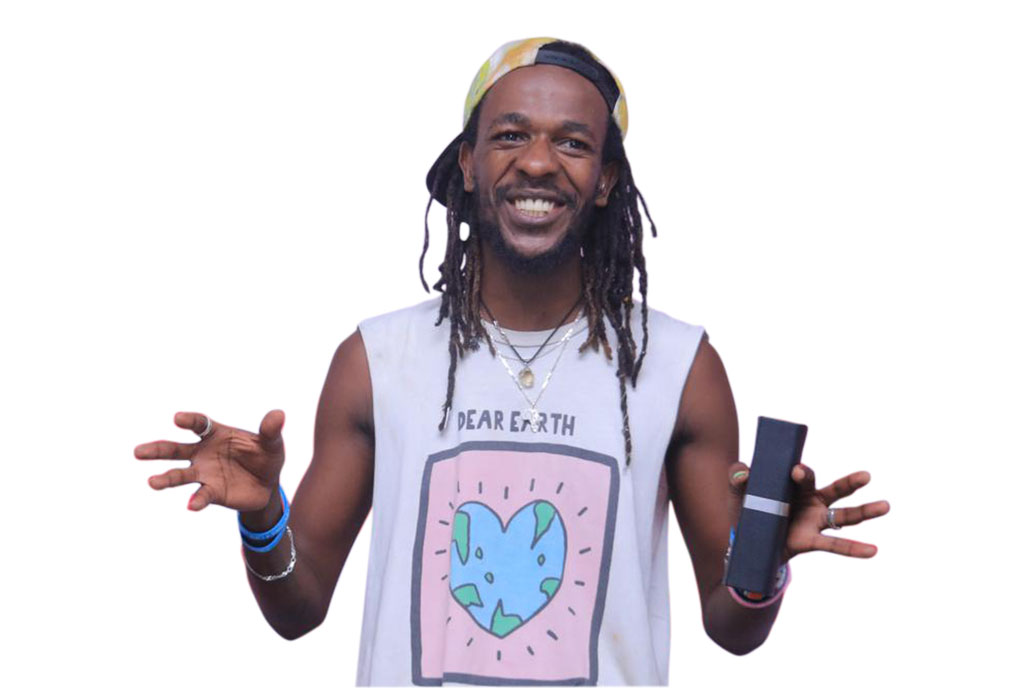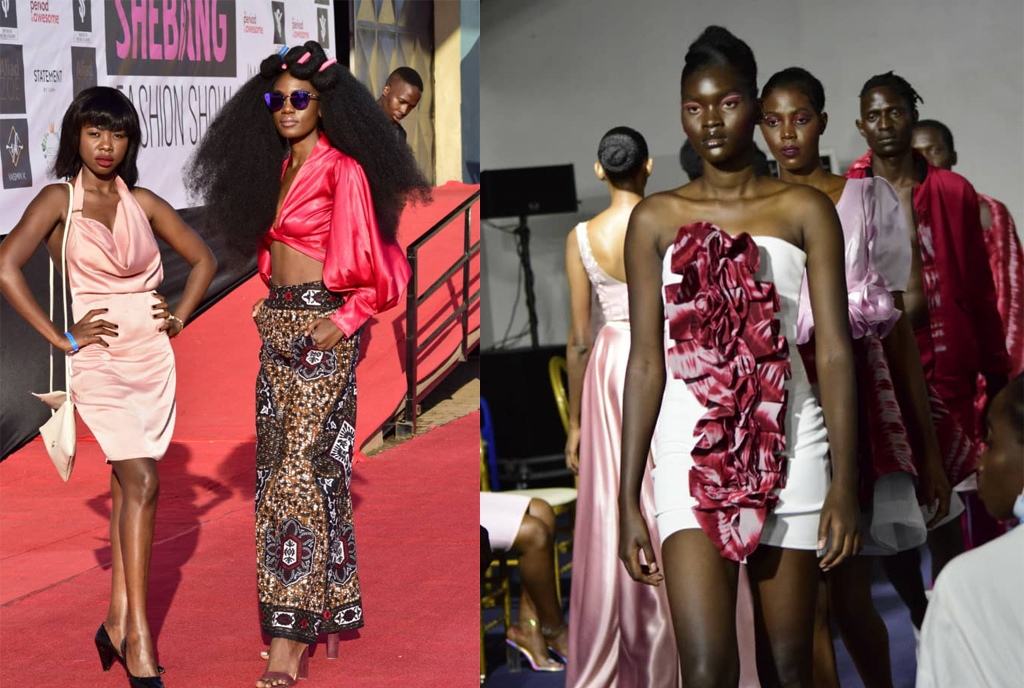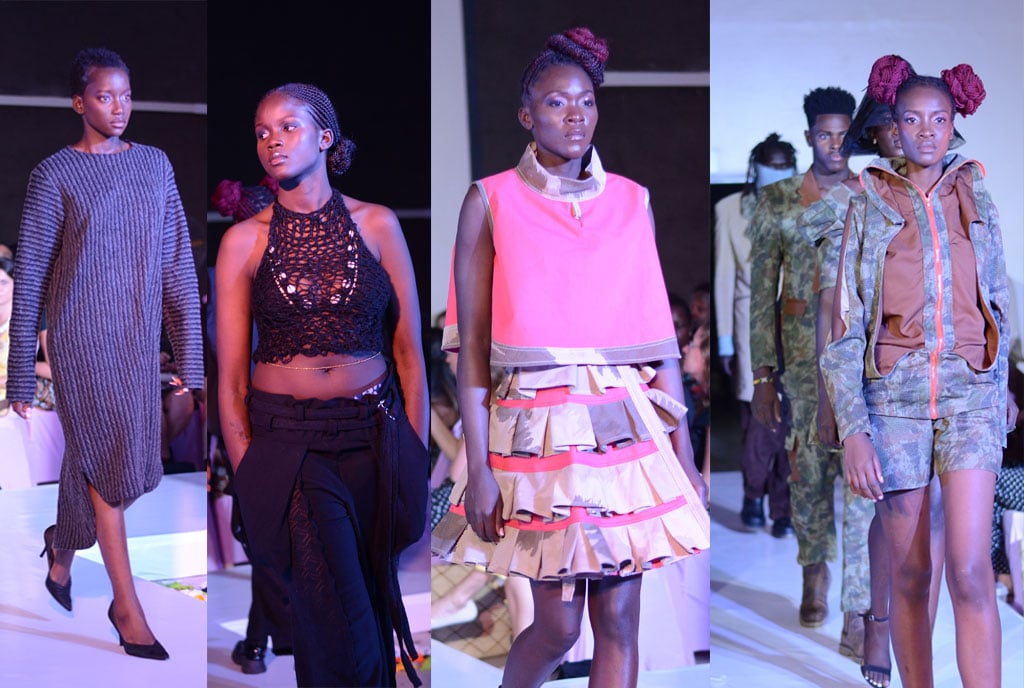Prime
Championing menstrual hygiene through fashion

Shyaka Farid Lwanyaaga. PHOTO/ISAAC SSEJJOMBWE
What you need to know:
- Heroic. Shyaka Lwanyaaga talks to Isaac Ssejjombwe about his creative approach to menstruation.
Every year World Menstrual Hygiene Day is commemorated on May 28. This was initiated by the German-based NGO WASH United in 2013 and observed for the first time in 2014.
However, the shame and stigma caused by beliefs and myths connected to religious and cultural meaning affects perception of girls and the way they are treated during that time of the month. In many ways this makes them feel less or unworthy.
With this background, Shyaka Farid Lwanyaaga who had always wanted to help start the conversation around monthly period shame and also give a platform to creative people in different fields to start a conversation on sexual reproductive health and rights, founded Wellness Foundation and Shebang creative.
Background
Growing up in Kisenyi, Lwanyaaga did not have many privileges. His father was the sole breadwinner and whenever he fell sick, life seemed to go on standstill until his recovery. This evoked feelings of creating better health awareness for people.
“I felt if there was a way we could teach our people about certain health habits so that they do fall sick so often. If someone is healthy, they fend for their families easily,” Lwanyaaga says.
To achieve that goal he aimed to pursue a course in public health but that did not come so easy.
“I fought so hard with my dad who thought he had a doctor-in-the-making because I was so bright in school,” the philanthropist recollects.
Lwanyaaga’s academic excellence earned him scholarships from his father’s friends.
He, then pursued a Bachelor’s in Public Health Science at Cavendish University.
“I got bored by the Public Health course, but finally completed it in 2015 after dropping out about six times,” he remarks.
Therein, he had done a course unit on sexual reproductive health and his course work entailed doing research concentrating on menstrual health management. He talked to about 500 girls in Kisenyi, a slum in Kampala. His research findings were, girls could not afford pads and there was shame and stigma about it. He felt he could solve that problem and the myths surrounding it.
Birthing an idea
In 2017, Lwanyaaga went to Dar es Salaam to do science and leadership postgraduate courses through his mentor based in Stockholm University, Sweden. They were facilitating a leadership postgraduate course for university students.
To join this course, you either attend as a student from university or as a representative sent by the government of Uganda. Lwanyaaga sent an email to the facilitator who was by-then the governor of Bank of Tanzania telling him about his urge to attend but without the necessary qualifications as he was intending to participate as an individual but desired the knowledge. His wish was granted.
“By the end of the course, I was the best student with my paper which required us to explain how we are going to integrate leadership and science to transform institutions. That paper birthed my organisation.
Starting the organisation
When the young man returned home, he teamed up with Sharon, a woman who suggested that distributing pads was the best idea. However, having grown up in Kisenyi he opted for a different approach.
“We had to instead talk to people and establish what they thought the problem was. This way we would offer solutions. It is then that our foundation became an organisation in 2017,” he adds.
With his then Swedish girlfriend, they talked to a friend who was the proprietor Wise Economy Global Association to form a partnership and got a capacity building grant of about $40,000 of which he received less than $20,000.
But the money was too little according to Lwanyaaga. However, that grant helped in the registration of the company and carrying out creative workshops every week in different places including Namuwongo, Kisenyi, Kamwokya, Mengo and Kasubi, also paying some people in the organisation.
The turning point. Frequenting Kisenyi has always been on Lwanyaaga’s agenda. He goes to Kisenyi about thrice a week. During one of his visits downtown, hanging out with street kids, a girl called Jackeline walked up to him and said something he will never forget.
“I appreciate you giving us pads but I have to pay money to go to the toilet and dispose it off. But I don’t have that money. But if I sell that pad at Shs3,000, I will use that money to buy weed and spend the whole day and night in my own world,” she said.
These words, changed Lwanyaaga’s mindset and he had to find a quick solution.
“I attended the Human Kind Festival in Australia and I had a meeting with the managing director (MD) of one of the biggest advertising agencies in the world called M and C Search during a dinner.
We had a long chat about my organisation and he asked how he could be of help. I brought up Jackline’s chat and he asked how much it would cost to erect a small building probably with a bathroom. I told him about $2,000,” he recounts.
After two weeks, Lwanyaaga received a call from the MD who had fundraised $13,000 with his friends for the project.
That money was used to open up Menstruation Station, a space in Kisenyi on Kiguli Road near Usafi Market. It opened up in 2019 offering different services.
There is a bathroom and toilet, a safe space where they can talk to a resident counsellor. There girls can get free sanitary towels, tampons and menstrual caps. They offer free lessons in tailoring, making pads, screen-printing and candle making.
On average, the station gets 6,000 visitors every year and there is a fulltime staff member and among the five committee members, one has to volunteer to come by thrice a week.
Creative approach
Because there was already a station, Shyaka Lwanyaaga knew that some people were still shy about the topic of menstruation.
To tackle this, he started Shebang an annual fashion show that happens every May 28 on World Menstrual Hygiene Day with the 3rd edition happening this year at Design Hub.
The fashion show has different themes and for this year, he tackled mental health, sexual reproductive health and menstrual hygiene.




